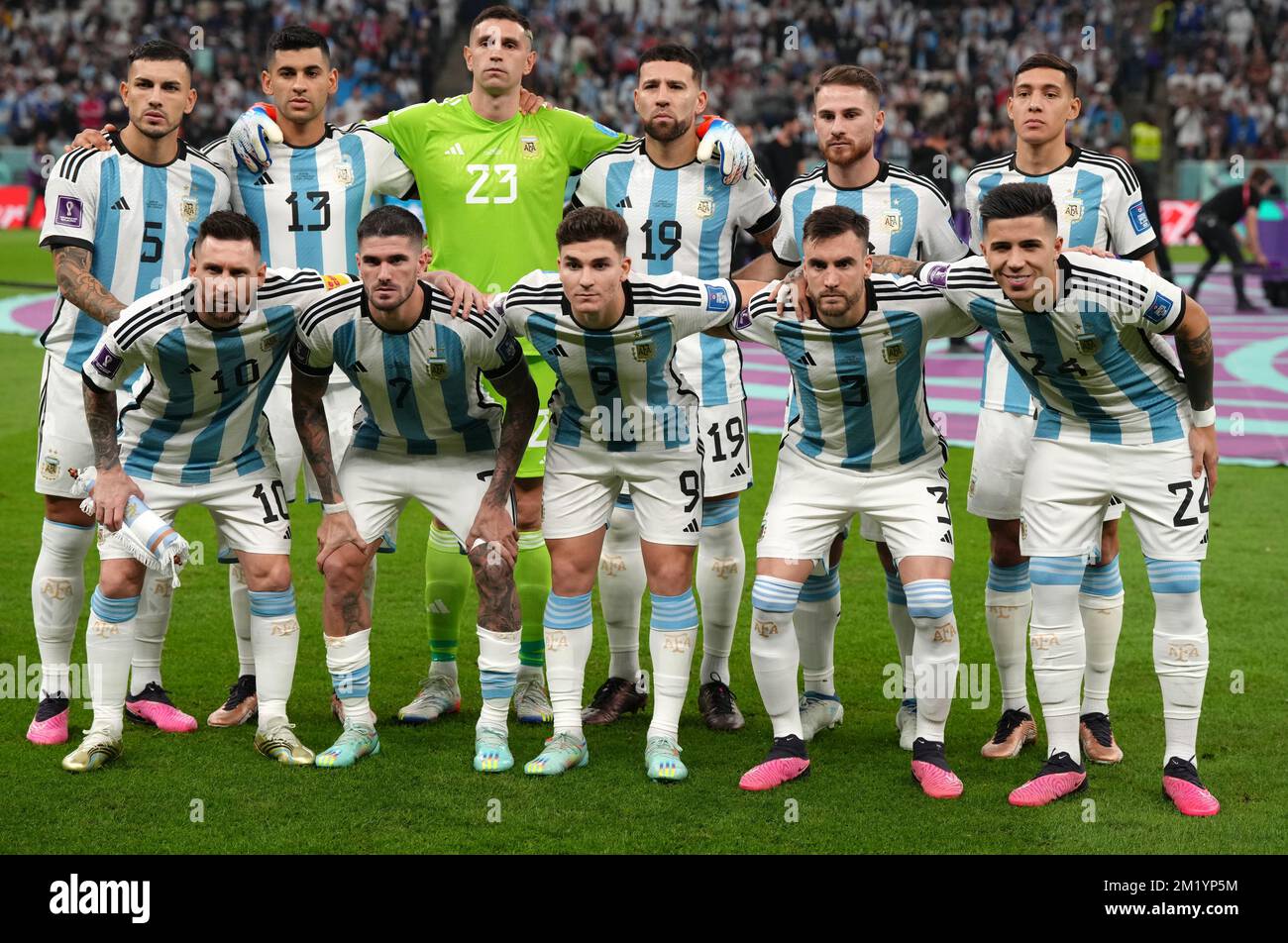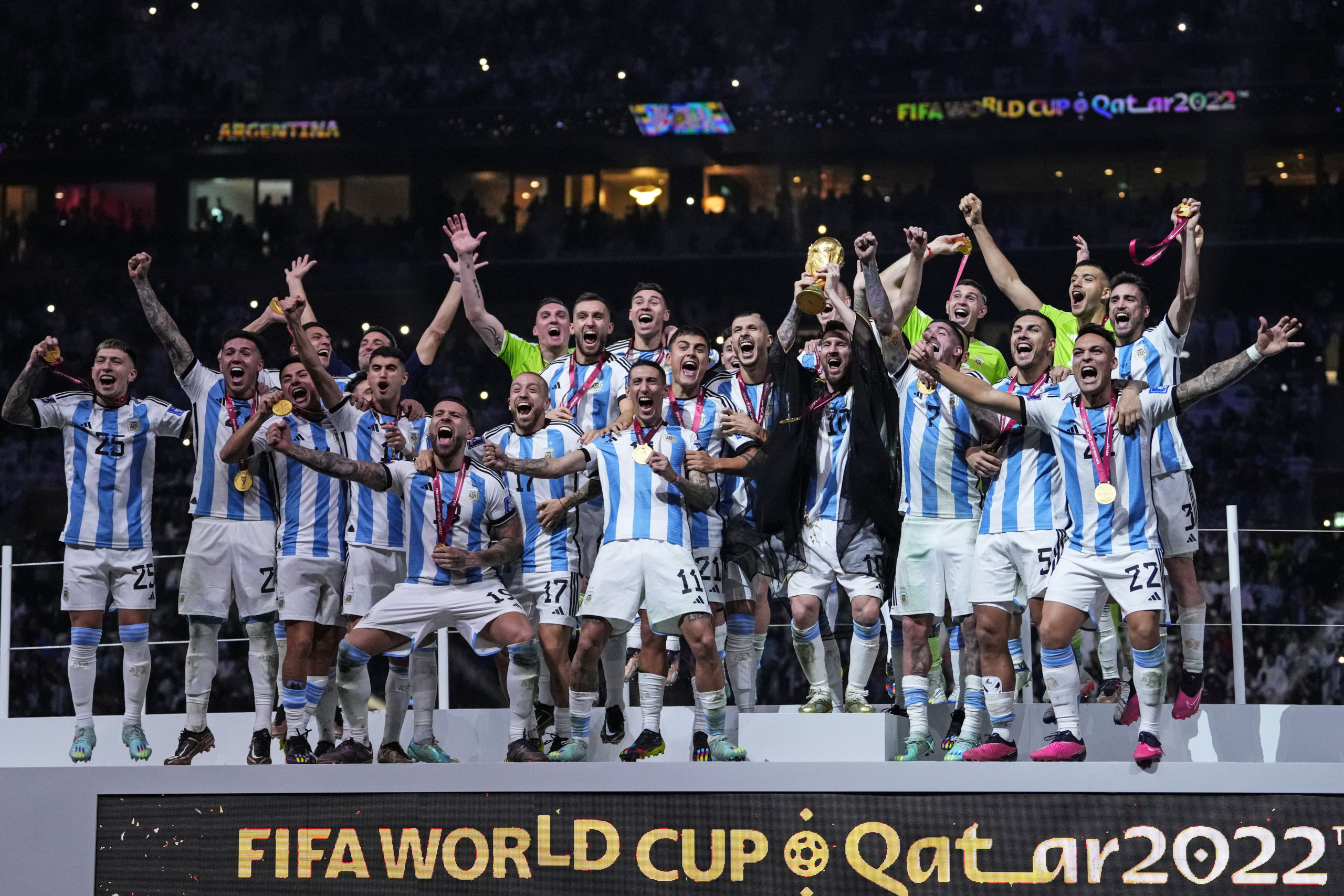Argentina Soccer: A Nation’s Passion and Legacy
Related Articles: Argentina Soccer: A Nation’s Passion and Legacy
Introduction
With enthusiasm, let’s navigate through the intriguing topic related to Argentina Soccer: A Nation’s Passion and Legacy. Let’s weave interesting information and offer fresh perspectives to the readers.
Table of Content
Argentina Soccer: A Nation’s Passion and Legacy

Argentina soccer is more than just a sport; it’s a cultural phenomenon, a national obsession, and a source of immense pride. The country’s rich history in the game is intertwined with its identity, and the passion for Argentina soccer resonates throughout its society.
This article delves into the multifaceted world of Argentina soccer, exploring its history, its impact on the nation, its current state, and its future prospects. We will examine the key figures, the iconic moments, and the enduring legacy that makes Argentina soccer a global force.
A History of Triumph and Heartbreak
Argentina soccer boasts a history as rich and dramatic as any nation’s. From the early days of the game’s introduction in the late 19th century, Argentina has consistently been a powerhouse on the international stage.
Early Pioneers and the Rise of a Nation:
Argentina soccer emerged in the late 19th century, fueled by the influx of European immigrants who brought their passion for the sport with them. The first organized football clubs were established in Buenos Aires, and the game quickly spread across the country.
The early years were marked by the emergence of legendary clubs like Boca Juniors and River Plate, who laid the foundation for the fierce rivalries that continue to define Argentina soccer today. These clubs, along with others like Racing Club, Independiente, and San Lorenzo, established a strong domestic league that attracted talent from all corners of the nation.
International Success and the Golden Age:
Argentina’s international success began in the 1920s and 1930s, with the national team winning the first ever FIFA World Cup in 1930. This victory solidified Argentina’s place as a global force in the sport, setting the stage for a string of memorable achievements.
The 1950s and 1960s witnessed a golden age for Argentina soccer. Led by iconic figures like Alfredo Di Stéfano, Omar Sivori, and Antonio Rattín, the national team reached new heights, capturing the hearts of fans worldwide.
The Rise of Maradona and a New Era:
The 1980s saw the arrival of arguably the greatest player of all time: Diego Maradona. His arrival ushered in a new era for Argentina soccer, defined by brilliance, controversy, and unparalleled passion.
Maradona’s leadership propelled Argentina to victory in the 1986 FIFA World Cup, a tournament that cemented his legendary status and left an indelible mark on the history of the sport.
The Modern Era and the Pursuit of Glory:
The post-Maradona era has seen Argentina navigate through periods of both triumph and disappointment. The national team has continued to be a force to be reckoned with, consistently qualifying for major tournaments and reaching the latter stages.
The emergence of players like Lionel Messi, Sergio Agüero, and Javier Mascherano has ensured that Argentina remains a major contender on the global stage. However, the elusive quest for a third FIFA World Cup title has continued to elude the nation, leading to both frustration and renewed determination.
The Impact of Argentina Soccer on the Nation
Argentina soccer is more than just a sport; it’s a cultural phenomenon that has shaped the nation’s identity and psyche.
A Unifying Force:
Argentina soccer transcends social and economic divides, uniting people from all walks of life under a shared passion. Whether it’s the fervent chanting of supporters in stadiums or the lively discussions in cafes, Argentina soccer provides a common ground for connection and shared experiences.
A Source of National Pride:
Victories on the international stage are celebrated with immense pride and joy, while defeats are met with disappointment and a sense of collective mourning. Argentina soccer serves as a barometer of national sentiment, reflecting the nation’s hopes and aspirations.
A Cultural Icon:
The sport has permeated all aspects of Argentine culture, inspiring music, literature, and art. From the iconic tango to the vibrant street art, Argentina soccer is a recurring theme that reflects the nation’s spirit and passion.
The Future of Argentina Soccer
Argentina soccer is poised for an exciting future, with a new generation of talented players emerging and a renewed focus on development.
The Legacy of Messi:
Lionel Messi, widely considered one of the greatest players of all time, continues to inspire awe and admiration. His remarkable skill, unwavering dedication, and pursuit of excellence have set a high bar for future generations of Argentine footballers.
The Importance of Youth Development:
Argentina has made significant strides in youth development, nurturing young talent and ensuring a pipeline of future stars. The country’s commitment to grassroots football has created a fertile ground for the next generation of players to flourish.
The Quest for a Third World Cup:
The pursuit of a third FIFA World Cup title remains a driving force for Argentina soccer. The nation’s determination to reclaim its place on the global stage is unwavering, fueled by a deep-rooted passion for the sport.
Related Searches
1. Argentina National Football Team:
The Argentina national football team, also known as La Albiceleste, represents Argentina in international competitions. The team’s history is replete with legendary players, iconic moments, and a passionate fan base.
2. Lionel Messi:
Lionel Messi, widely regarded as one of the greatest footballers of all time, is a symbol of Argentina soccer. His remarkable skills, unparalleled talent, and unwavering commitment to the sport have captivated fans worldwide.
3. Diego Maradona:
Diego Maradona, a legendary figure in Argentina soccer, is revered for his brilliance on the field and his impact on the nation’s sporting identity. His iconic performance in the 1986 FIFA World Cup cemented his legacy as a global icon.
4. Boca Juniors:
Boca Juniors is one of the most popular and successful football clubs in Argentina. The club’s passionate fan base, known as "La Bombonera," creates a unique atmosphere at home matches.
5. River Plate:
River Plate, another prominent club in Argentina soccer, is known for its rich history, dedicated supporters, and fierce rivalry with Boca Juniors.
6. Superclásico:
The Superclásico is the highly anticipated match between Boca Juniors and River Plate, two of Argentina’s most popular clubs. The rivalry between the two teams is a defining feature of Argentina soccer.
7. Copa Libertadores:
The Copa Libertadores is the premier club football tournament in South America. Argentine clubs have consistently been among the top contenders, showcasing the region’s talent and passion for the sport.
8. Argentine Football Association (AFA):
The Argentine Football Association (AFA) is the governing body for Argentina soccer. The AFA oversees the national team, the domestic league, and various other aspects of the sport.
FAQs
1. Who is the current manager of the Argentina national football team?
The current manager of the Argentina national football team is Lionel Scaloni.
2. When did Argentina last win the FIFA World Cup?
Argentina last won the FIFA World Cup in 1986, under the leadership of Diego Maradona.
3. What is the most popular football club in Argentina?
Boca Juniors and River Plate are arguably the most popular football clubs in Argentina, with massive fan bases and intense rivalry.
4. What is the significance of the Superclásico?
The Superclásico, the match between Boca Juniors and River Plate, is considered the most important and passionate rivalry in Argentina soccer. It transcends the sport, becoming a cultural phenomenon.
5. What are the main challenges facing Argentina soccer today?
Argentina soccer faces challenges such as maintaining its competitive edge on the international stage, ensuring the development of young talent, and addressing the issue of fan violence.
Tips
1. Experience the Passion:
To truly appreciate Argentina soccer, immerse yourself in the passionate atmosphere of a live match. The energy and enthusiasm of the fans are contagious, creating an unforgettable experience.
2. Learn about the History:
Delve into the rich history of Argentina soccer, exploring the legendary players, iconic moments, and enduring rivalries that have shaped the sport.
3. Follow the Domestic League:
Explore the Argentine Primera División, a competitive league that showcases the country’s talent and passion for the sport.
4. Support the National Team:
Cheer for the Argentina national football team in major tournaments, experiencing the collective pride and excitement that the sport evokes.
5. Embrace the Culture:
Argentina soccer is deeply intertwined with Argentine culture. Explore the music, art, and literature that reflect the nation’s love for the sport.
Conclusion
Argentina soccer is a force to be reckoned with, both on and off the field. Its rich history, passionate fans, and enduring legacy make it a global phenomenon. The nation’s commitment to developing young talent and its unwavering pursuit of excellence ensure that Argentina soccer will continue to inspire and captivate audiences for generations to come.
The sport serves as a unifying force, a source of national pride, and a cultural icon that reflects the spirit of Argentina. As the country continues to embrace its passion for Argentina soccer, the future of the sport holds immense promise and potential.








Closure
Thus, we hope this article has provided valuable insights into Argentina Soccer: A Nation’s Passion and Legacy. We appreciate your attention to our article. See you in our next article!

